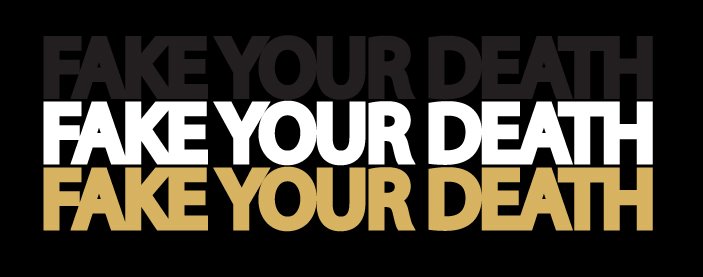
At what point in our youthful idealism have we outgrown the need for
knowing someone? When did it become standard to evaluate a person based on their economic occupation? How did I become so lazy as to reduce someone's entire life into four easy, monosyllabic words?
"What do you do?"
Hang out with anyone 25 years old or older and I guarantee it's among the first of three (at most, three) introductory questions. Usually the newcomer's name will be offered, followed by some obvious commentary: "Crazy night, huh?" "How do you know John/the groom/my brother?" etc.
But invariably and inevitably the question comes.
"What do you do?"For some, the question is met with pride and relief. Finally, you've been given opportunity to announce your station in life. Maybe your job connotes some prestige or respect or earning power and you're now allowed to bask in the validation afforded by your job title.
For others, the question is met with sheepish indifference, usually followed by some kind of qualifier. "I work in a warehouse,
but I'm going to school to be a teacher" or "I'm a teacher,
but I'm starting a small business." The question we've asked has now placed an uncalled-for burden of anxiety on the person, all in the name of "getting to know someone."
Since when has a person's
job title been enough to know them? When has the way someone converts time to money ever been a sufficient peek into their lives?
The truth is, I cannot know someone by knowing their economic occupation. You cannot know their heart or their passions by knowing where or how they spend 8 hours of their day.
There are times when someone is genuinely interested in knowing your job. But, I would submit that most often the interviewer is simply too casual, too lazy to ask the hard questions.
It is
always wrong to assume that someone's reply to the question will tell me who they are. At this point, all we're doing is sharpening our stereotyping skills (I call it discernment) by measuring them against our imagination. A losing game, for sure.
"I'm a lawyer"
"I'm a teacher"
"I work in a warehouse"
"I work in a restaurant"
It's the ultimate question in failure, there is never a right answer. Essentially, we're asking a new person to play some sort of mind-reading trivia game against all of our past experiences. Any answer the person gives is immediately measured against your unique and distinct emotional history with that occupation. We've got it so wrong. I have it so wrong.
And every assumption is never fully accurate and always fully unfair.
These four words have irretrievably and indiscriminately reduced someone to the answer of your careless line of questioning.
How disappointing it would be to realize that what you do for 8-10 hours a day has become your identity, your single identifying trait worn proudly/humbly/begrudgingly as a badge of introduction.
I think the offense goes beyond the laziness of the person asking the question. For so long we've supported the idea that our validation comes from our occupation. Our business has become our business card, our mutual link to the understanding of another. I've traded passion for pretense.
What if we chose never to ask the question? What if we decided that the value and estimation of a person is found in his passion or in her heart. There's too many proving this wrong. I know guys in "noble" occupations who aren't noble people, and I know just as many who carry mundane tasks with the heart of an adventurer. You are not your job.
I know teachers who "do it for the money," and lawyers who wish they were teachers.
What if we responded to the inevitable question by answering in passion?
What do you do?
You are not your job.



